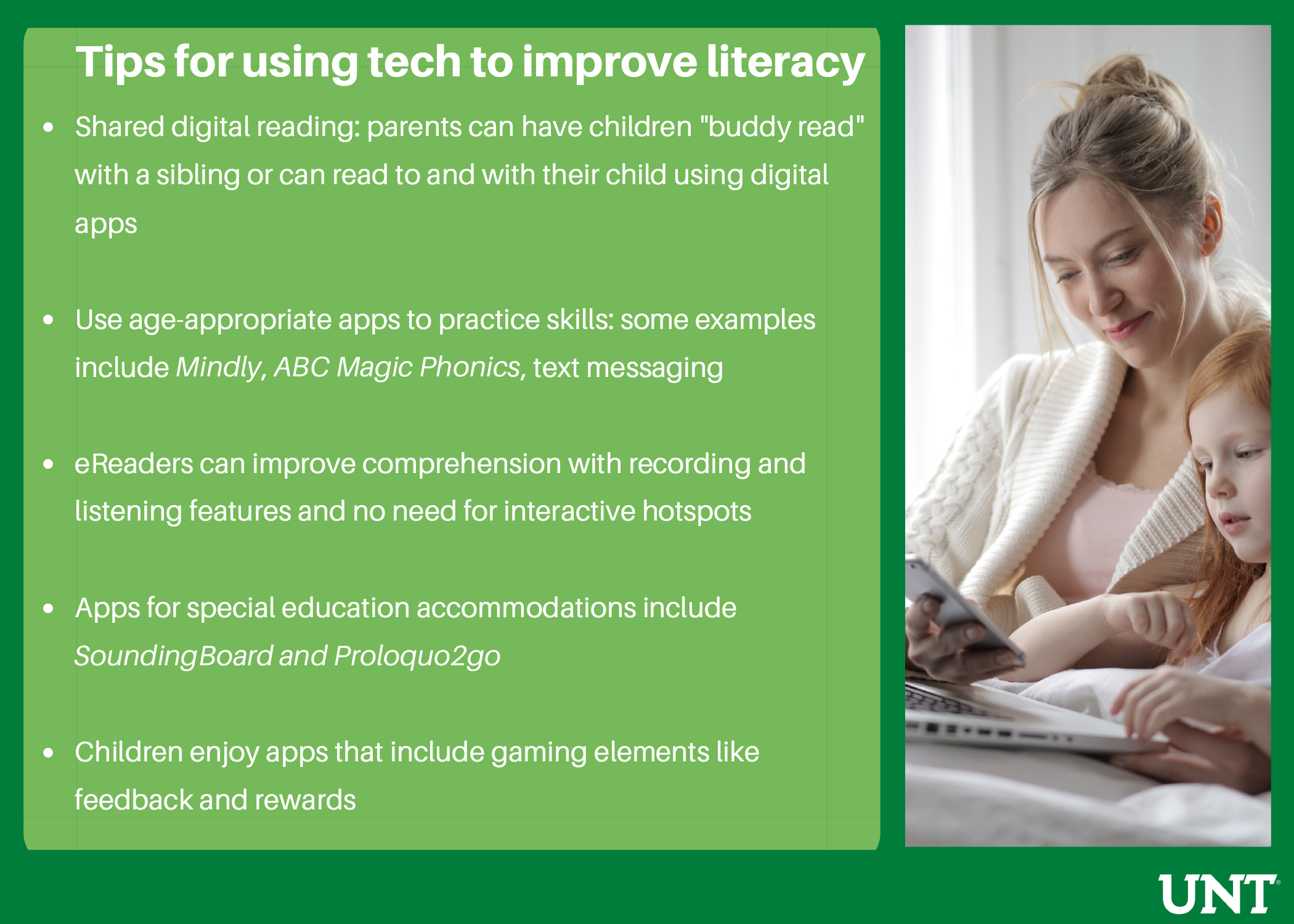Assistant professor Lauren Eutsler is dedicated to improving student literacy by examining how to more efficiently use continually changing educational technology in the classroom and at home.
She recently examined instances where pre-kindergarten through fifth-grade teachers used mobile technology, like tablets preloaded with apps, to improve students’ literacy achievement. She identified gains in several areas, including increased comprehension for English learners when they combined reading digital books with apps that provide recording and listening features.
“One of the biggest issues facing our students currently is the inequity of students’ ability to access and use technology,” Eutsler says. "The cost of a personalized device starts around $100, plus headphones, WiFi and app fees. While some apps are free, many are commercially available and restricted to schools, while others can be costly and inhibit widespread use. Though not always possible, I focus on free educational apps because I know this is what my teachers and parents need.”
The study found strategies for teachers to use that can make the most out of using technology remotely and at home to create student-centered learning. The study examined apps, devices and settings and found those that contributed to students’ academic growth in literacy and those which were less effective.
“During the year 2012-2013, I taught literacy to a classroom of fourth-graders, all identified as being at the lowest 50 percent in overall academic achievement, in comparison to their immediate peers,” Eutsler says. “I had four desktop computers and a shared cart of Netbooks. I saw my students’ literacy scores increase as they completed assignments in order to spend some time with educational computer apps.”
After Eutsler left teaching to pursue her Ph.D., she continued working with the idea of using educational technology to improve literacy, especially in students who saw themselves as “disinterested readers.”
“I cannot stress enough the importance of providing students with choices such as print and digital books along with a list of apps for teachers and parents to work with students to develop literacy skills,” Eutsler says.


